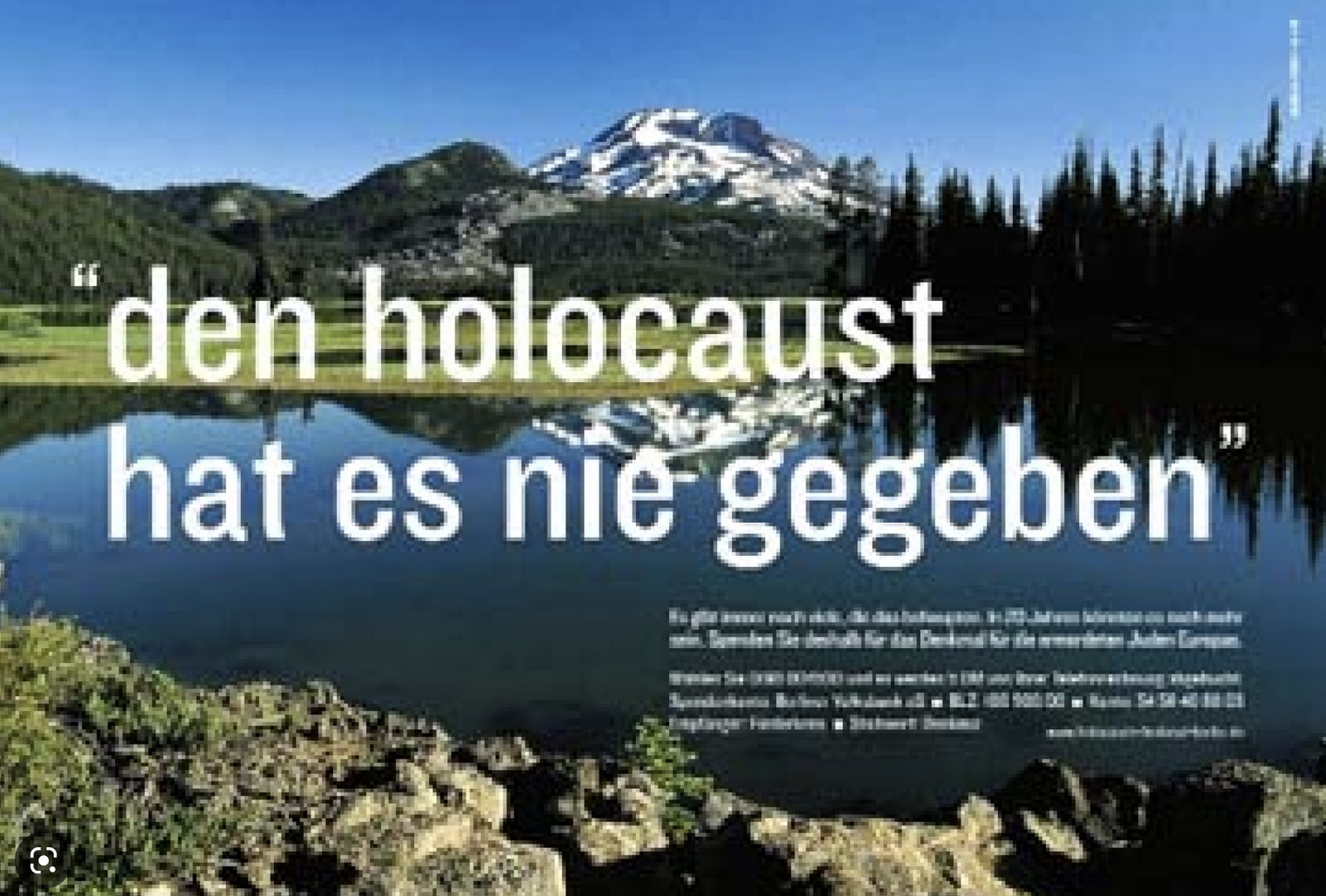“There never was a Holocaust”
The photograph of an idyllic German landscape is set to be exhibited from today in the form of a huge poster in the centre of Berlin and all throughout Germany; postcards bearing the same image will be distributed in quantity free of charge. Superimposed in large letters on the landscape is the sentence “den holocaust hat es nie gegeben” (“there never was a holocaust”) and, in smaller print, a text reading:
“There are still many people who assert this. In 20 years’ time there will be still more. Make a donation for the memorial to the murdered Jews of Europe.”
There follow instructions as to how to make a contribution. The campaign’s organisers, amongst whom Lea Rosh, acknowledge its provocative character. In Germany, in Austria, and in a good number of other countries in the world, anyone who disputes the “Holocaust” story, or who merely calls it into question, is liable to a long prison term, fines, a professional ban and still other punishments.
In Berlin, the “Holocaust” museum is scheduled to open on January 27, 2004, in commemoration of the 59th anniversary of the Soviet “Liberation of Auschwitz.”
When shall we in France see a new launch of the slogan “Faurisson a raison” (1979) or “L’abbé Pierre a raison” (1996)? We should then see in Toronto “Zundel is right.” In Munich, where in 1995 Reinhold Elstner, as an act of protest against “the Niagara of lies” poured upon his country, burned himself to death, we should see “Elstner hatte Recht.” And so forth.
But – a sine qua non – any proceeds would, of course, go towards Jewish memorials or to Jewish organisations.
References : Reuters and AP releases of July 18, 2001 and the following three URL pages:
http://news.excite.com/news/r/010717/10/international-germany-holocaust-dc
http://www.holocaust-denkmal-berlin.de/index.php
http://news.excite.com/news/ap/010717/16/germany-holocaust-memorial
July 19, 2001
***
Addenda of July 26
1 — Lea Rosh, née Edith Rohs, is of Jewish origin, notwithstanding what some may say. She survived the Second World War because she was among those Berlin children whom the authorities evacuated to the countryside, thus enabling them to escape the holocaust visited upon all big German towns by the Anglo-American bombers (Deutsche National Zeitung, May 10, 1991, p. 1) ;
2 — Today’s issue of the French daily Libération carries, on page 8, an article on the subject, with a photograph of the poster which, we are told, measures 30 by 15 metres. One may perceive that the text of the warning message has been slightly modified; instead of “In 20 years’ time there will be still more”, we now read “In 20 years’ time there could be still more.” The verbal form könnten, marking the conditional, has replaced the form werden, which marks the future;
3 — A satirical cartoon inspired by the poster is currently circulating in France; in large letters it reads “There was a Holocaust” and, in small letters, “There are still many people who assert this. In twenty years’ time there will be far fewer of them. Not a penny for the hoaxers!”

